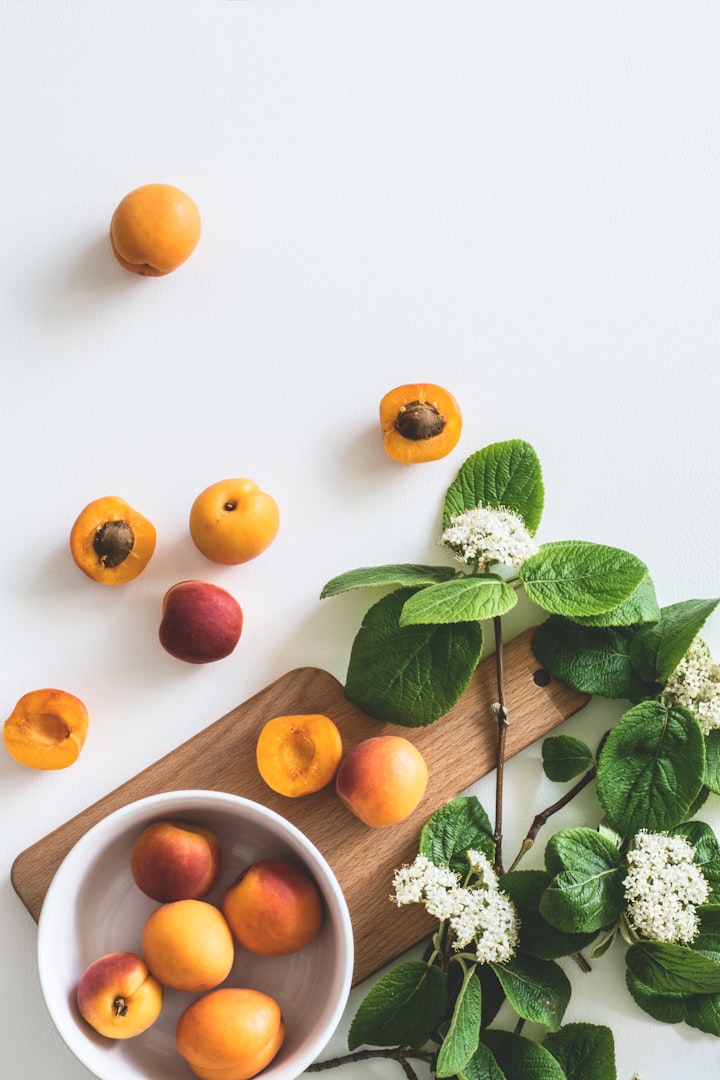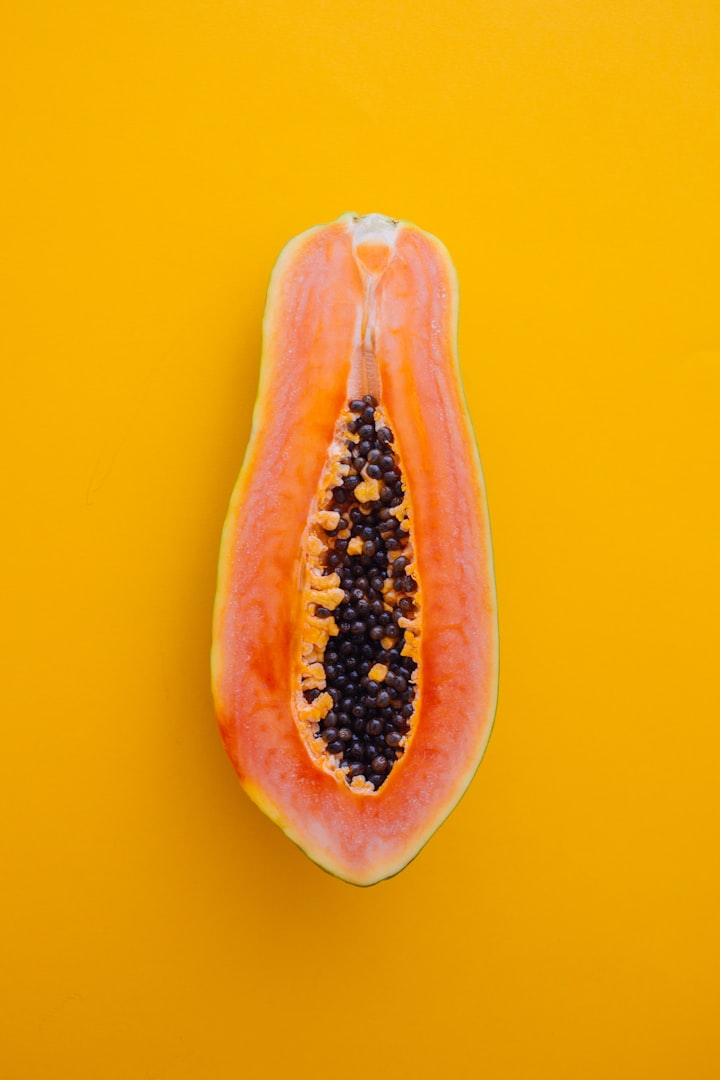Thoughts On Apricots
The Go-To Fruit For Diabetics And Ones Suffering From Anemia
I didn't discover apricots until I moved to North Carolina. I understood apricots were a fruit. It wasn't until I added dried apricots to my granola, I felt like I stumbled on the vibrant colored fruit.
Growing up, my family didn't buy dried fruit. Perhaps it was not a food trend as it is now. These days, I like to snack on apricots or added them to baked cooking dishes, like pork chops or chicken.
The sweet and tart flavor combined with its soft texture makes for a great component when baking savory dishes of all kinds. Apricot's varying color ranging from pale yellow to orange makes great colorization for a well-balanced meal.
As my love for the stone fruit continues, I've come to discover a few interesting food facts about apricot.
Apricots had a huge influence on traditional remedy practices.
In early medicine practices, apricot oil and juice were used as home remedies because the fruit provided vitamins, minerals, and essential calories for bodily recovery.
For instance, apricot oil was used for earaches and served as a topical alternative for rashes, scabies, and eczema. Apricot juice was used for patients suffering from fever.
Apricots are related to some of our favorite fruits!
Apricots are related to the botanical plant family, Prunus, which is also home to cherries, nectarines, and plums.
Known as the Armenian plum, apricots originated in China. Now, apricots are grown everywhere excluding Antarctica. It's believed that apricots initially originated from Armenia.
In 2019, the top apricot-producing areas were Turkey, Uzbekistan, Iran, Italy, and Algeria.
Apricots are loaded with antioxidants.
As I mention in all of my writings, antioxidants are essential for recovering from radiation damage, cell development, and recovery, as well as general immunity.
Apricot is an ideal food for flavonoids, beta carotene, lutein, and zeaxanthin, to name a few. Apricots are high in phosphorus and carotenoids and xanthophylls, which slows down age-related vision ailments.
Apricots are packed with vitamins A and E which are great for eye health.
According to StyleCraze, eating fruit can lower the risk of vision loss.
Additionally, the botanical fruit offers vitamin C. When vitamins C and E bond together, the duo helps build collagen in the skin as well as prevent sunburn.
The low-calorie fruit is high in potassium, also known as vitamin K, which acts as an electrolyte and aids in muscle contraction.
A report published by the Aritihis Foundation showed that beta-cryptoxanthin found in apricots is a chemical that aids in reducing loss of bone density and other forms of muscle deformations. Magnesium found in apricots can also lower inflammatory pain.

Fiber to the rescue!
The fiber in our daily meal plans is important because regular bowel movements are necessary. Fiber breaks down fatty acids quickly and helps with digestion.
Fiber aids the gastric and digestive system and absorbs nutrients to break down foods.
Fiber helps regulate blood sugar levels.
The soluble and non-soluble fiber found in apricots can help maintain healthy blood sugar and cholesterol levels.
Choosing your apricots.
A Spanish study proved nuts and dried fruit, like apricots, are healthy additions to a diabetic diet.
Apricots are great for diabetics because their glycemic index, or GI, for sugar-free dried apricots is about 42.
The sodium, saturated fat, and cholesterol-free fruit are excellent as a dried fruit snack for ones suffering from anemia, as it's packed with essential minerals like iron, calcium, and copper.
Apricots are available in various varieties such as Goldrich, Rival, Perfection, Moorpark, and Tilton.
Choose apricots that are ripe and rich in color.
Be sure to choose an apricot that is slightly soft, but firm to the touch. If you choose a pale apricot, allow the fruit to ripen by storing it on a countertop or refrigerating it for up to five days.
Apricots are great for making preserves, jellies, marmalades, baked goods, cooking - or as a plain ole' snack!
You can enjoy apricots dried, fresh, or in pill and powder form at your nearest grocery or vitamin supplement store.
Which way do you enjoy apricots?
Let's start the conversation!
About the Creator
Ashley Terrell
Bestselling author. Entrepreneur. Seasonings and spices saved my life. Where sheep and angels share the same color. Newport News, VA. Conqueror and lover of all things Fine Arts.







Comments
There are no comments for this story
Be the first to respond and start the conversation.